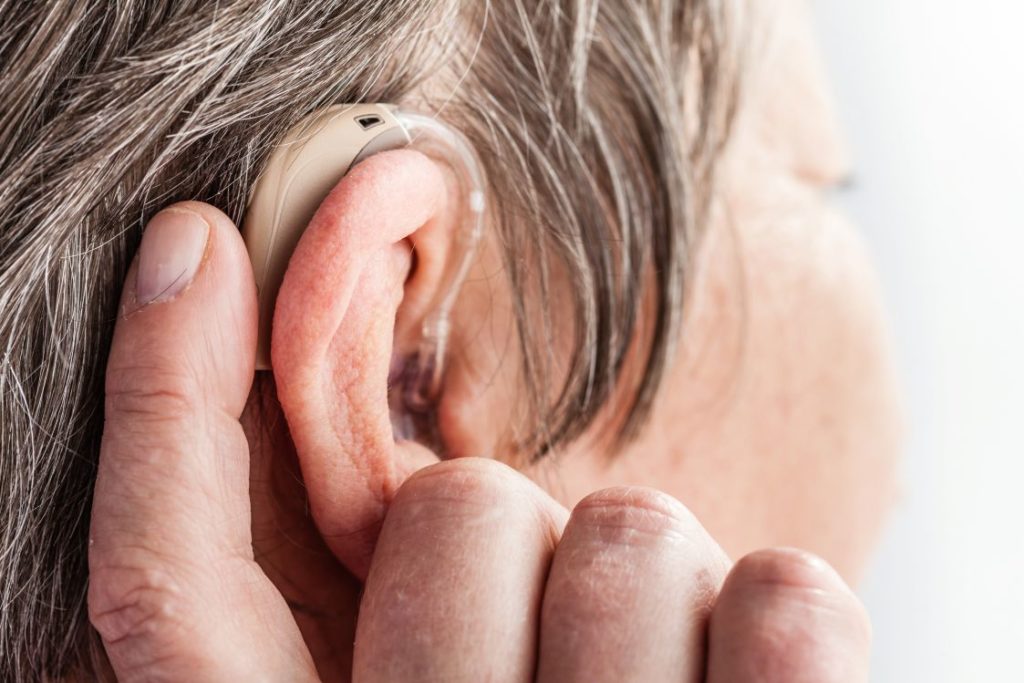Tinnitus, often described as a ringing, buzzing, or hissing sound in the ears, affects millions of people in the UK. And, despite how common it is, tinnitus remains widely misunderstood.
Myths about its causes, severity and treatment options often prevent people from seeking the right help, leaving them feeling frustrated and unsupported. At Hearing Therapy, we believe that education is a vital first step in managing tinnitus effectively.
In this blog, we’ll debunk some of the most common tinnitus myths, provide evidence-based insights, and share what really works when it comes to managing symptoms and improving your quality of life.
Myth 1: “Tinnitus is a disease.”
The truth: Tinnitus isn’t a disease; it’s a symptom.
Tinnitus is not a standalone medical condition, but rather a sign that something else is going on. It may stem from hearing loss, exposure to loud noise, ear infections, stress, or even certain medications. Sometimes, the cause is never fully identified, but that doesn’t mean it can’t be managed.
Understanding this distinction is key. Rather than looking for a “cure” in the traditional sense, effective tinnitus treatment focuses on managing the underlying causes and providing support to reduce its impact on daily life.

Myth 2: “There’s nothing you can do for tinnitus; you just have to live with it.”
The truth: While tinnitus doesn’t have a one-size-fits-all solution, that doesn’t mean nothing can be done.
This is one of the most harmful tinnitus myths out there. There are many evidence-based strategies and therapies available that can significantly reduce the impact of tinnitus. Cognitive behavioural therapy (CBT), sound therapy, relaxation techniques, and hearing aids (where hearing loss is present) can all help you regain control and live well despite symptoms.
How does Hearing Therapy manage tinnitus?
At Hearing Therapy, we take a personalised approach. Our tinnitus assessments are designed to get to the heart of each person’s experience and create a tailored management plan. Many of our clients tell us that understanding their tinnitus and learning practical coping tools makes all the difference.
Click here to learn more about tinnitus, our assessment process, or you can book a tinnitus check using our online portal.
Myth 3: “Tinnitus is only caused by loud noise.”
The truth: Noise exposure is one possible trigger, but not the only one.
While loud environments, such as concerts or noisy workplaces, can indeed contribute to tinnitus, there are many other possible causes. These include:
- Ear infections or other medical conditions
- Stress and anxiety
- Certain medications (e.g. high doses of aspirin or some antibiotics)
- Head or neck injuries
Because there are so many possible contributing factors, it’s important not to self-diagnose or assume your tinnitus “must be” from a noisy event years ago. A professional tinnitus assessment can help pinpoint likely causes and steer you towards the most appropriate treatment.
Myth 4: “Only older people get tinnitus.”
The truth: Tinnitus can affect anyone at any age.
Although tinnitus is more common in older adults (largely due to age-related hearing changes) it can also affect young adults, teenagers, and even children. The rise of personal listening devices and earbud use has made tinnitus more common in younger people in recent years.
In fact, many people in their 20s and 30s visit us at Hearing Therapy with concerns about ringing or buzzing sounds. No matter your age, tinnitus should never be dismissed. Early support can help you manage it effectively and prevent it from worsening over time.
There are organisations that share interesting statistics and invaluable support. Learn more about tinnitus and safe listening habits to protect your hearing and minimise tinnitus symptoms, check out these websites:

Myth 5: “Tinnitus is all in your head.”
The truth: Tinnitus is a real and measurable condition.
Some people dismiss tinnitus as being psychological or imagined, but that couldn’t be further from the truth. While the sound is generated internally, that doesn’t make it any less real. In fact, brain scans have shown increased activity in specific areas of the brain in people with tinnitus, particularly those related to sound perception and emotional processing!
That said, your mental and emotional well-being can influence how you experience tinnitus. Stress, anxiety and poor sleep can all make it feel louder or more intrusive. That’s why part of effective tinnitus treatment in the UK often includes strategies for managing stress and improving sleep – areas we frequently support our clients with at Hearing Therapy.
Myth 6: “If my tinnitus gets worse, it means I’m going deaf.”
The truth: Tinnitus and hearing loss often go hand in hand, but one doesn’t always cause the other.
It’s true that many people with tinnitus also have some degree of hearing loss, but worsening tinnitus doesn’t automatically mean your hearing is deteriorating. Sometimes, increased stress or fatigue can make tinnitus feel more prominent, even if your hearing is unchanged.
That said, it’s always worth having your hearing checked if you notice any changes. A full hearing assessment, which we offer as part of our tinnitus support services, can give you peace of mind and help guide the best course of action.
So, what does help tinnitus?
The good news is that there are many ways to manage tinnitus. While what works best will depend on the individual, here are some of the most effective evidence-based options:
Hearing Aids
If hearing loss is present, hearing aids can be incredibly effective. They not only improve hearing but often reduce tinnitus by amplifying background sounds that help mask the ringing or buzzing.
Tinnitus Retraining Therapy (TRT)
A combination of sound therapy and counselling designed to help your brain “tune out” the tinnitus over time. This method is particularly helpful for those who find the sound intrusive or distressing.
Sound Therapy
Using background noise (like white noise machines, nature sounds or hearing aids with sound bathing technology) can reduce the contrast between tinnitus and silence, making it less noticeable.
Cognitive Behavioural Therapy (CBT)
CBT helps change the way you respond to tinnitus by addressing negative thought patterns and anxiety. It’s one of the most effective psychological interventions for tinnitus.
Relaxation and Mindfulness Techniques
Tinnitus often feels worse during periods of stress. Mindfulness, breathing exercises, and progressive muscle relaxation can help calm the nervous system and reduce the emotional impact.

Why book a tinnitus assessment?
Living with tinnitus can be frustrating, exhausting and sometimes frightening, especially when you’re unsure what’s causing it or how to manage it! A comprehensive tinnitus assessment is the first step toward understanding your unique experience and getting support that works.
At Hearing Therapy, we offer a caring, expert-led approach that focuses on your whole wellbeing. We take the time to listen, explain and create a treatment plan that puts you in control. Whether your tinnitus is new or something you’ve struggled with for years, help is available.
Take the first step towards relief. Book your tinnitus assessment today and start reclaiming peace and control in your life.
